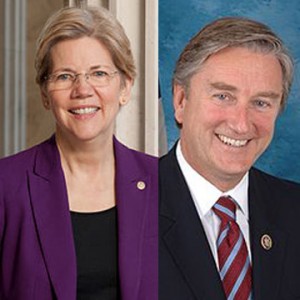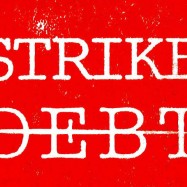Throughout the Great Recession, only one type of household debt grew: student debt. As student debt and student loan defaults escalate at an unsustainable pace, private lenders continue to increase their profit margins. Sallie Mae is the largest private student loan lender and one of the chief profiteers off of student debt, yet it faces minimal public scrutiny and accountability. There’s an incredible amount of work to be done to try to ease the burden of student debt in this country, but we can start by regulating lenders like Sallie Mae whose profits are soaring at the expense of our nation’s students.
The reality is that students won’t have access to an education without the accompanying burden of a lifetime of debt until we take the undue influence of big banks out of our democracy. Today, lenders like Sallie Mae spend millions of dollars peddling influence with legislators. Sallie Mae’s lobbying efforts were recently described by The New York Times as “aggressive” — the company spent nearly $37.5 million on lobbying from 1998 to 2012. This year, Sallie Mae has already spent over $1.2 million on federal lobbying trying to squash several consumer protection bills, including the Private Student Loan Bankruptcy Fairness Act of 2013 and the Fairness for Struggling Students Act of 2013. Both pieces of legislation call for increased regulation of private banks with a history of bad lending practices. To combat this, hundreds of students and activists traveled to Newark, Del., late last month to introduce a resolution demanding increased transparency and disclosure at Sallie Mae’s annual shareholder meeting. The resolution received support from an unprecedented 35.5 percent of shareholders who voted, a huge victory in the long-term campaign to hold Sallie Mae accountable to its customers.
Last month also marked another major victory in the battle to rein in Sallie Mae: after months of requests, CEO Jack Remondi agreed to meet with students. Now, those directly affected by the bank’s sky-high interest rates will have an opportunity to explain why those business practices are actively standing in the way of recent graduates’ ability to contribute to an economy that desperately needs them. We’re always fighting for the 99 percent to have a seat at the table, because when enough of those voices are heard – the voices of workers, students, community members and consumers – changes finally get made.
On July 1, student loan interest rates will double from 3.4 percent to 6.8 percent unless Congress acts to provide relief for approximately seven million students. The increase will cost borrowers receiving the federal subsidized Stafford loans an additional $1,000 per year. A variety of bills have been introduced to address the looming July 1 deadline. Students can’t afford the same lobbyists that wealthy banks and corporations can, but they’ve still managed to get their voices heard on Capitol Hill and are committed to taking an active role in finding a legislative solution.
The final piece of this puzzle is regulation. On May 8, the Consumer Financial Protection Bureau (CFPB) issued a report (“Student Loan Affordability“) that encouraged private lenders to modify existing private student debt through a series of options, including refinancing interest rates, term extensions, principal forbearance and principal reduction. Other experts have suggested a shared loss on defaults and increased transparency on fees associated with student loans. We used our incredible online activist community to mobilize borrowers to submit comments to the CFPB and offer real-life testimony on how these regulations could provide immediate and real relief for those struggling to pay off their student loans – allowing recent graduates to participate fully in our economic recovery.
At the end of the day, the story of our country’s student debt crisis is just the latest chapter of a troubling narrative where the economy only works for the wealthiest one percent of Americans. Corporations are bringing in record profits despite record-high unemployment, and now students are taking out mortgage-sized loans just to get an education. Students and graduates are fighting back to put education into the hands of consumers, not wealthy corporate lenders. The only way that higher education can return to an affordable and accessible right for all families is if we remove the corporate bottom line from the classroom and make loan forgiveness, bank regulation and education investment a national priority.
Sarita Gupta is the executive director of Jobs With Justice, a Washington, D.C.-based organization. With offices located nationwide in 25 states and 45 communities, Jobs With Justice collaborates with community, student and faith organizations to build a vital labor movement for economic and social justice.
Gupta appeared on Moyers & Company last year to speak with Bill about restoring workers rights and her involvement in the 99% Spring.







